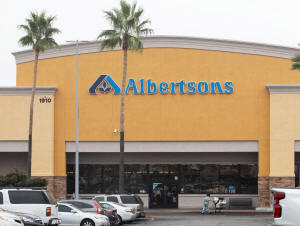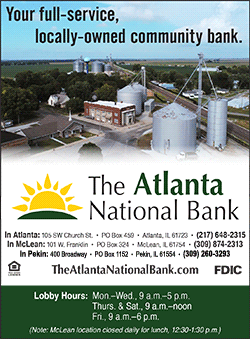California probes 'pharmacy deserts' in Kroger's Albertsons deal-sources
 Send a link to a friend
Send a link to a friend
 [August 18, 2023] By
Diane Bartz [August 18, 2023] By
Diane Bartz
WASHINGTON (Reuters) - The California attorney general's office is
probing whether Kroger's $24.6 billion plan to buy rival grocer
Albertsons will make it harder for people in poorer parts of cities or
rural areas to buy medicines, according to two people familiar with the
review.
Food deserts, which are better known, are often working class areas of
cities or small towns where people have few options to buy healthy foods
like fresh foods or vegetables. Areas can face the same issue with
pharmacy access.
Research from the University of Southern California in 2021 found one in
three neighborhoods in 30 populous U.S. cities were "pharmacy deserts."
In urban areas, researchers defined a pharmacy desert as a neighborhood
where people had to walk or take a bus more than a half mile to a
pharmacy. In areas where people tended to drive, a neighborhood that was
more than a mile from a pharmacy would be termed a pharmacy desert.
Two people told Reuters that the California attorney general's office,
which is reviewing the planned acquisition for potential violations of
antitrust law, has also asked if the deal would mean more or bigger
pharmacy deserts in the state. The people declined to be identified
because they were not authorized to speak on the record about the
conversations.

California Attorney General Rob Bonta has previously said he was "deeply
concerned" about the proposed merger.
The deal, announced in October, would create a grocery chain with nearly
5,000 stores, although up to 650 may be sold to win approval for the
transaction. Walmart is the biggest U.S. grocer with 34.8% of the market
while a combined Kroger/Albertsons would be No. 2 at 22%, according to
Food and Water Watch.
A total of 2,254 Kroger-owned stores have pharmacies while some 1,700
Albertsons supermarkets have pharmacies, according to the companies'
websites.
[to top of second column] |

A customer leaves an Albertsons grocery
store, as Kroger agrees to buy rival Albertsons in a deal to combine
the two supermarket chains, in Riverside, California, U.S., October
14, 2022. REUTERS/Aude Guerrucci

A spokesperson for Kroger said that the company was working with
antitrust enforcers to ensure that any stores that are sold to
satisfy antitrust concerns would remain open and viable, including
any stores with pharmacies.
"Post-transaction, Kroger will operate the pharmacies that are part
of the Albertsons' stores that it acquires," the spokesperson said.
Staffers for the Federal Trade Commission, which is leading the
federal probe, have spoken with experts in food deserts, the farming
industry and smaller grocery chains, according to people who were
queried by the agency.
Neither of the people who spoke with Reuters about pharmacy deserts
knew if enforcers would file a lawsuit aimed at stopping the
proposed transaction or when enforcers would decide what action to
take on Kroger's plan to buy Albertsons.
If the FTC files a lawsuit to halt the deal, it would be in line
with a broader Biden administration effort to prevent big companies
from doing deals that lead to higher prices and feed inflation.
One source told the California attorney general's office that low
income people were likely to lose access to pharmacy services, which
include vaccinations, if the deal goes forward.
The person argued that the deal would most likely lead to some of
the less profitable stores being closed, despite the companies'
pledge to close no stores.
(Reporting by Diane Bartz; Editing by Anna Driver)
[© 2023 Thomson Reuters. All rights
reserved.]
This material may not be published,
broadcast, rewritten or redistributed.
Thompson Reuters is solely responsible for this content. |